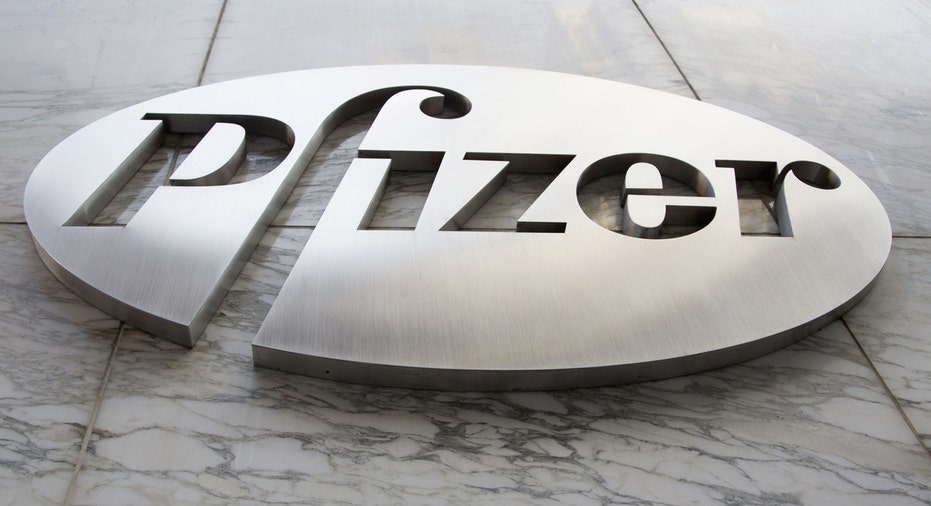Pfizer-Allergan Won't Be the Last Inversion

The biggest inversion deal ever surely won’t be the last.
Pfizer’s (NYSE:PFE) proposed $160 billion merger with Irish drug-maker Allergan (NYSE: AGN), a combination announced Monday that will create the world’s largest pharmaceutical company, was initiated by Pfizer so that the American company could avoid paying billions in U.S. taxes.
Pfizer CEO Ian Read hasn’t been shy on the subject, saying recently the disparity between the U.S. corporate tax rate and those of Pfizer’s overseas competitors forces his company “to fight with one hand tied behind our back.”
So despite a recent effort by the Treasury Department to discourage such inversions, and the potential political backlash facing U.S. companies seeking to ditch their U.S. citizenship for tax purposes, analysts believe the practice will continue pretty much unabated.
“I think people are predicting that this is the straw that will break the camel’s back,” said corporate tax expert Robert Willens, head of the New York-based consulting firm Robert Willens LLC. “But Congress has to change the law, which they don’t seem inclined to do.”
The law he is referring to – U.S. corporate tax law – requires U.S. companies to pay the highest corporate tax rates in the industrialized world.
In an effort to avoid paying the higher tax rate, U.S. companies have increasingly sought so-called inversions, or mergers that allow them to relocate their headquarters in countries with lower tax rates. By moving its corporate headquarters to Ireland, Pfizer for instance will be lowering its tax rate from 25% in the U.S. to below 20% on the other side of the Atlantic.
Pfizer CEO Read has argued that a drug company that pays lower taxes can spend more on research and development.
Other high-profile U.S. companies that have completed inversions in recent years include fast food chain Burger King Worldwide (NYSE: BKW), drug maker Mylan (NASDAQ:MYL) and advertising giant Omnicom Group (NYSE: OMC).
Not the Last One
In 2014, during a speech on job creation President Barack Obama took direct aim at inversions, urging Congress to pass tax reforms that would eliminate the loopholes that allow U.S. companies to shield large portions of their profits overseas.
Just last week the Treasury Department announced an array of new rules that would make it harder for companies to shift their addresses overseas solely to avoid paying U.S. taxes. It was the Treasury’s second stab at discouraging inversions in the past year-and-a-half, since the practice became a hot-button political issue in Washington.
Analysts predicted that the latest effort to rein in inversions would have little or no impact on the Pfizer deal, certainly the most high-profile and iconic U.S. company ever to attempt the shift. They were right.
In order to complete the Pfizer-Allergan deal, the largest inversion ever, and allow Pfizer its tax breaks, the combination had to be structured as a reverse merger, with the much-smaller Allergan buying Pfizer.
Willens said “if there was no such thing as taxes” Pfizer would have acquired Allergan. “But the merger had to be structured in that manner in order to capture the tax benefits that are certainly an important part of this deal.”
Notwithstanding political rhetoric out of Washington and efforts by the Obama Administration to curb the practice, Willens said companies shouldn’t be and certainly won’t be deterred from attempting inversions in the future.
“I think these deals are helpful for companies,” he said, adding he’d prefer that the U.S. tax system “didn’t encourage these kinds of deals. He’d rather see the U.S. corporate tax code reformed such that it was “more in line” with the foreign countries in which U.S. companies have to compete.
“That would be my preference, that the tax system be reformed. But absent that that these companies aren’t given a choice if they want to remain competitive with their foreign competitors,” he said. “If they want to change the tax system I’m all for it. These transactions would no longer be necessary. But until that happens, I don’t see this being the last one.”



















